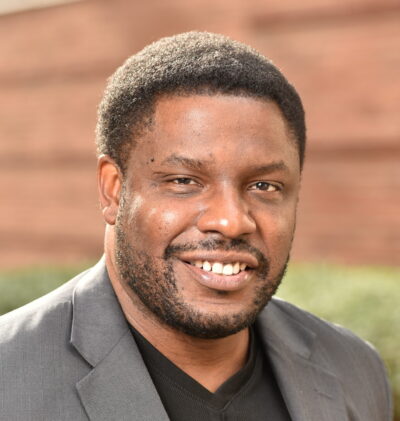
Ketema Paul, Ph.D.
1014 TLSB
Biography
After receiving a bachelor’s degree in biology from Howard University I went on to study neurobiology and circadian biology at Georgia State University in Atlanta, Georgia where I received my doctorate in 2003. I completed a postdoctoral fellowship at Northwestern University in Evanston Illinois in 2006 at the Center for Sleep and Circadian Biology under the guidance of Dr. Fred Turek, after which I accepted a faculty position at the Morehouse School of Medicine (MSM). I spent ten years at MSM and joined the faculty at UCLA in 2016.
Research Interests
My work examines the genetic regulation of sleep and more importantly, how genetic heterogeneity influences the ability to recover from sleep loss. My research program currently has two foci: 1) to determine if disruptions of biological timing result in sleep-wake disorders and if so, which specific genes are involved and, 2) to determine if sex differences in the risk and severity of sleep abnormalities are chromosomally driven. My lab has recently undertaken a forward genetics approach to identify novel sleep genes. We have characterized a variety of sleep phenotypes in inbred mouse strains in sleep-replete and sleep-deprived conditions. We are expanding this dataset to provide sufficient statistical power for quantitative trait loci (QTL) analysis and subsequent follow-up studies. This endeavor combines a well-established paradigm of comparative phenotyping of a genetically tractable animal model with powerful genetic mapping tools to identify novel sleep-regulatory genes. Consequently, these experiments will not only identify new sleep genes, they will also help verify and clarify previously mapped genes whose roles are not yet clearly defined.
Education
B.S., Biology, Howard University 1994
Ph.D., Biology, Georgia State University 2003
Selected Publications
Ehlen, J.C., Brager, A.J., Baggs, J., Pinckney, L., Gray, C.L., Debruyne, J.P., Esser, K.A., Takahashi, J.S., Paul, K.N., “Bmal1 function in skeletal muscle regulates sleep”, eLife, 1-15 (2017) .
Clark, K.P., Ehlen, J.C., Paul, K.N., “Race and Gender Disparities in Sleep-Disordered Breathing”, Journal of Sleep Disorders: Treatment & Care, 6 (1): 1-4 (2017) .
Brager A.J., Heemstra, L., Bhambra, R., Ehlen, J.C., Esser, K., Paul, K.N., Novak, C. M., “Homeostatic effects of exercise and sleep on metabolic processes in mice with an overexpressed skeletal muscle clock”, Biochimie, 132 : 161-165 (2017) .
Brager, A.J., Yang, T., Ehlen, J.C., Simon, R.P., Meller, R., Paul, K.N., “Sleep is critical for remote preconditioning-induce neuroprotection”, Sleep, 39 : 2033-2040 (2016) .
Ehlen, J.C., Jones, K.A., Pinckney, L., Gray, C.L. Burette, S., Weinberg, R.J., Evans, J.A., Brager, A., Zylka, M.J., Paul, K.N., Philphot, B.D., Debruyne, J.P, “Maternal Ube3a loss disrupts sleep homeostasis but leaves circadian rhythmicity largely intact”, Sleep, 35 : 13587-13598 (2015) .
Evans, J.A., Suen, T-C., Calif, B., Mitchell, A., Castanon-Cervantes, O., Baker, K.M., Kloehn, I., Baba, K., Teubner, B.J.W., Ehlen, J.C., Paul, K.N., Bartness, T.J., Tosini, G., Leise, T.L., Davidson, A.J, “Shell neurons of the master circadian clock coordinate the phase of tissue clocks throughout the brain and body”, Sleep, 13 : 1-15 (2015) .
Jefferson, F., Ehlen, J.C., Williams, N.S., Paul, K.N, “A dopamine D2-receptor agonist attenuates the ability of stress to alter sleep in mice”, Sleep, 155 : 4411-4421 (2014) .
Ehlen, J.C., Jefferson, F. Brager, A.J., Benveniste, M., Paul, K.N., “Period-Amplitude Analysis Reveals Wake-Dependent Changes in the Electroencephalogram during Sleep Deprivation”, Sleep, 36 : 1723-1735 (2013) .
Brager, A.J., Ehlen, J.C., Castanon-Cervantes, O., Natarajan, D., Delisser, P., Davidson, A., Paul, K.N, “Sleep loss and inflammatory markers under chronic environmental circadian disruption”, Sleep, 8 : 1-8 (2013) .
Ehlen, J.C., Hesse S., Pinckney, L., Paul, K.N, “Sex chromosomes regulate nighttime sleep propensity during recovery from sleep loss”, Sleep, 8 : 1-6 (2013) .

